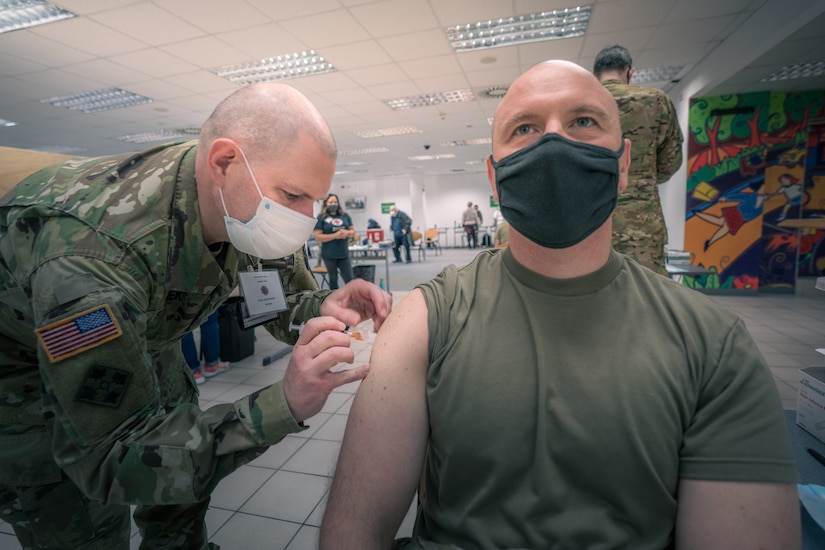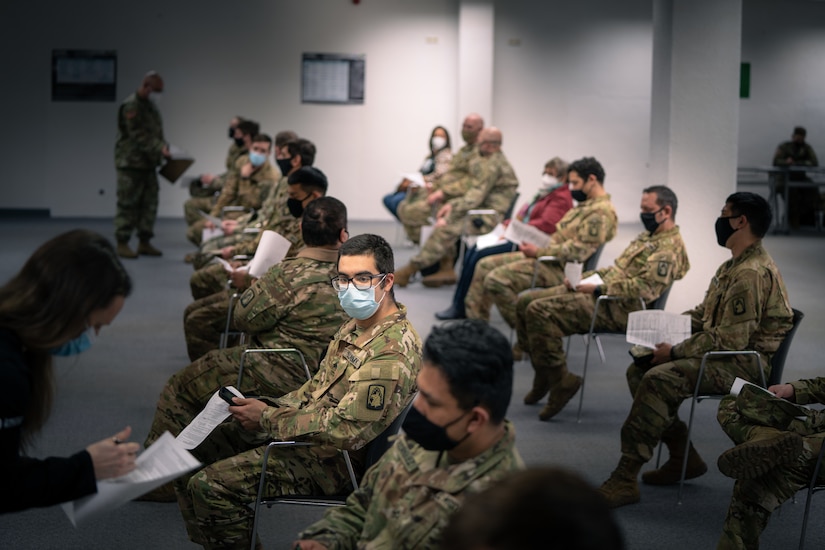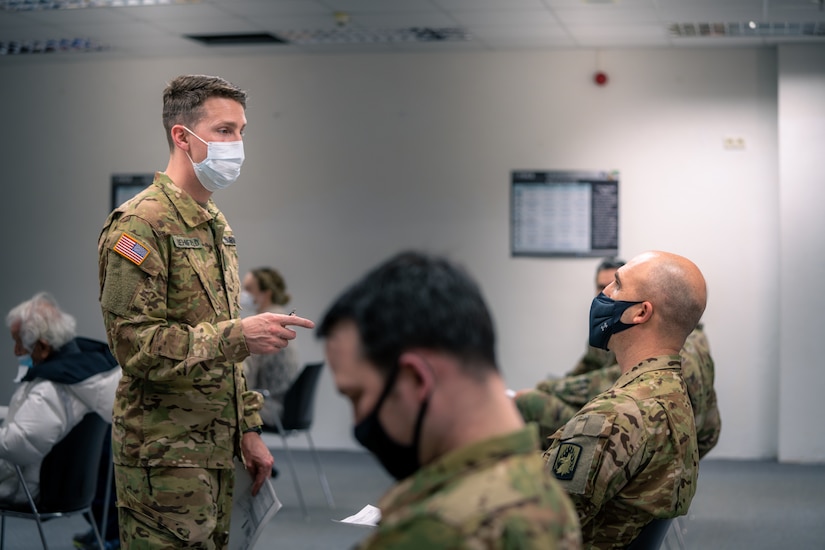March 17, 2021 | , Military Health System
Referred to as 'MassVax,' the digital archive will accurately track and ensure that the DOD's patient population has received COVID-19 vaccinations, considered essential to both a ready medical force and medically ready force.

Air Force Col. (Dr.) Thomas Cantilina, chief health informatics officer for the Defense Health Agency, said the DOD partnered with Cerner Corp., the company that designed the still-evolving MHS GENESIS, to develop the new capability.
"MassVax is designed to help us quickly record who gave what vaccine, as well as when and where it was given," Cantilina said. "Additionally, and more importantly, MHS GENESIS and its MassVax capability have enhanced safety and efficiency at our COVID-19 vaccine sites, through its ability to provide clinicians with patient data related to drug and allergy interactions - prior to vaccines being administered."
There is plenty to keep track of. According to the Defense Department, as of March 5, 84% of vaccines received by the DOD have been administered, accounting for nearly 1.3 million total doses given at 335 sites; additionally, 81,256 vaccinations at retail pharmacies were administered to MHS beneficiaries. And the newly approved single-shot Janssen COVID-19 vaccine (also known as Johnson & Johnson) was being prepared for immediate DOD roll-out.
MassVax went live at Naval Hospital Twentynine Palms in California in September 2020, giving staff sufficient time to become proficient with the new system and recognize the powerful tool they had to administer vaccinations on a massive scale, touted Dave Marks, public affairs officer at NHTP. The facility supports the Marine Corps Air Ground Combat Center in the Mojave Desert, the largest Marine Corps base in the world.

"Because an average Marine battalion is around 1,000 members strong, we needed something that was quick and efficient," Danielle Vasquez, a licensed vocational nurse and the Twentynine Palms COVID-19 vaccine program manager, said. "We've had great success with our through-put. We can vaccinate up to 150 [service members] per hour, and that's not even using MassVax at its full capability."
Developing, Pre- and Post-Pandemic
MassVax is speeding up the patient intake process by pre-populating registration data directly from a patient's electronic health record, or EHR, saving valuable time and allowing teams to focus on getting shots in arms, added Cantilina, who also serves as the Military Health System's deputy EHR functional champion. Patients have their identification cards scanned, rather than filling out traditional intake forms. Providers can quickly administer shots while scanning to record the exact moment a specific medication is given to a patient.
"As far as the post-pandemic use of MassVax is concerned, we not only plan on using it, but the capability was being developed for our use prior to the COVID-19 outbreak," he said. "In fact, our teams were particularly interested in using MassVax to facilitate the rapid administration of vaccines to troops preparing to deploy, as well as quickly administering vaccines to new recruits preparing for boot camp."
In its development cycle, MassVax is akin to the COVID-19 vaccines. The technologies to deliver similar products were in development long before March 2020 but were accelerated with additional resources set to respond to the pressing emergency of the deadly virus.

Cantilina explained that because of the pandemic, certain MHS GENESIS deployment activities that required staff to travel to support training efforts or facilitate new hardware and software installations were paused. But teams found ways to execute the mission of deploying MHS GENESIS while also mitigating the risk of contracting or spreading COVID-19, he added. MHS GENESIS is on track to be fully deployed by the end of 2023. At that point, the end state will be a single health record for all service members, veterans, and their families.
MHS GENESIS helps health care workers by "making it easy to do the right thing," Cantilina explained. Since it has been configured at an enterprise level, the system "leverages standardized workflows in each clinical area of practice, whether you're a doctor, nurse or technician. This simplifies how our providers care for patients as the system is designed to walk them through certain aspects of each patient encounter."
Cantilina again emphasized how the system alerts medical professionals of potential risks with each patient, like drug interactions or allergies.
Vasquez was involved in the years-long planning that led up to the implementation of MHS GENESIS, and she already had experience with the new system from her prior employment at a civilian hospital.
"I love it," she said. "I'm excited about having one military record for everyone. And I love that there's a patient portal available, especially since a lot of our families travel, and it's great for them to have access to their vaccination records and their actual patient history anywhere they go. It's amazing."
No comments:
Post a Comment